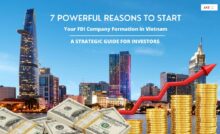What Are Top 10 Challenges of Doing Business in Vietnam?

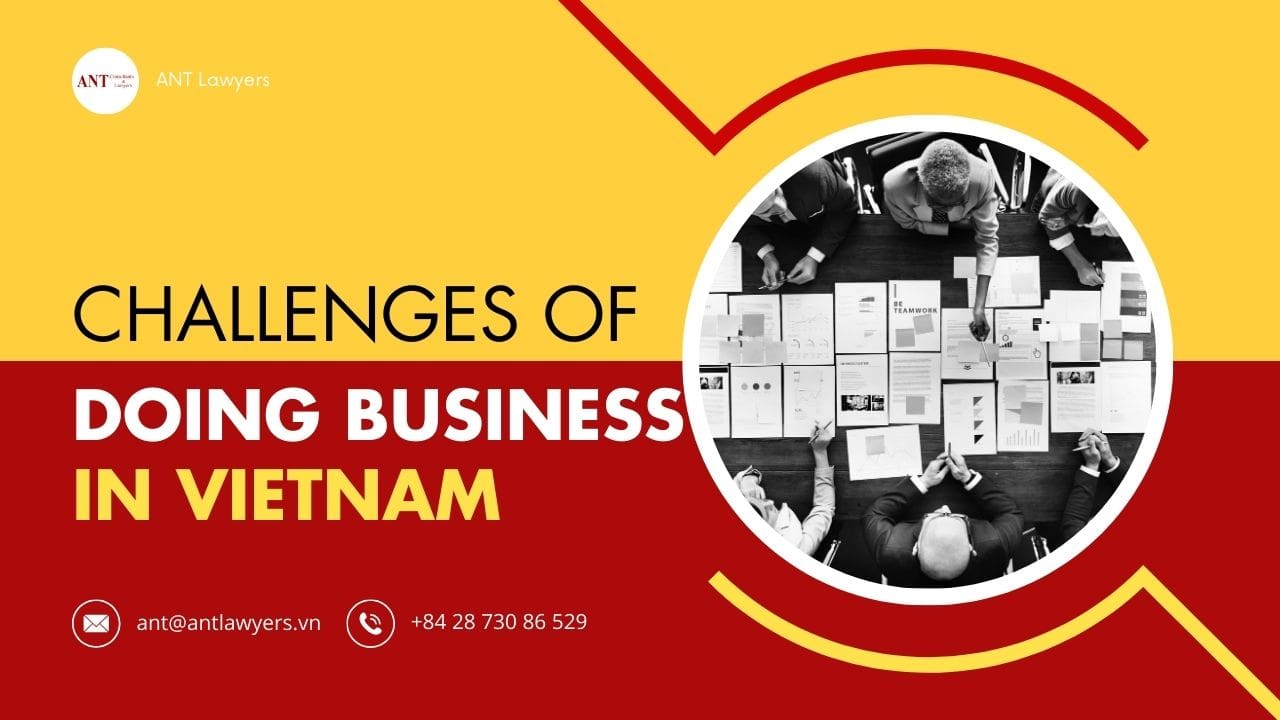
10 Challenges of Doing Business in Vietnam
Challenges of Doing Business in Vietnam
Expanding gross domestic product (GDP), modern infrastructure and a dramatic increase in foreign direct investment (FDI) are signs that Vietnam has transformed into an attractive investment destination, but there are still challenges of doing business in Vietnam which are best navigated with local help on board.

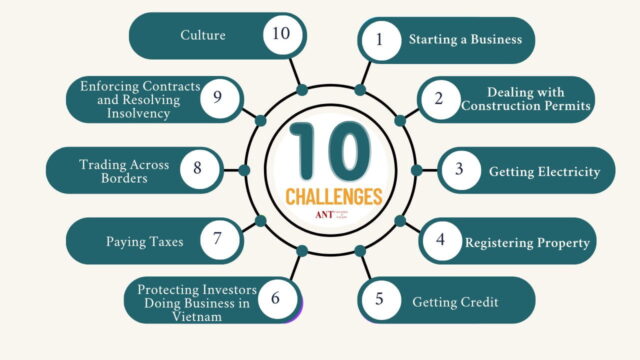
Current Situations of Foreign Investors Doing Business in Vietnam
Since 1988, there have been 13,544 foreign investment projects with a total registered capital of US$213 billion in Vietnam, building a large overseas investment sector which occupies about 17% of GDP and 43.4% of industrial product value.
Overseas firms are attracted by Vietnam’s 97.47 million-strong population which supports a large and young workforce and that has also seen an increase in disposable income in recent years.
Strong economic growth rates have been a common feature of the Vietnamese economy since the 1990s, and even though the high levels slumped slightly during the global financial crisis, the country has rapidly returned to pre-crisis growth trends and is expected to continue on this path.
Infrastructure, tourism development, and related real estate and retail sector development in urban areas are all attracting large amounts of FDI, and overseas firms are increasingly attracted by the country’s move from a centralized to a market-orientated economy.
However, The World Bank and International Finance Corporation (IFC) rank Vietnam in 99th place in the world for ease of doing business, which means it is essential to seek local help of law firms and lawyers in Vietnam when expanding into the country.
Challenges of Doing Business in Vietnam
Top 10 Challenges of Doing Business in Vietnam
1. Starting a Business
2. Dealing with Construction Permits
3. Getting Electricity
4. Registering Property
5. Getting Credit
6. Protecting Investors Doing Business in Vietnam
7. Paying Taxes
8. Trading Across Borders
9. Enforcing Contracts and Resolving Insolvency
10. Culture
Starting a Business
There are more than 10 procedures to undertake when starting a business in Vietnam, making it among the most complex start-up environments in the world. What’s more, many tasks facing new corporate entities may be unfamiliar to overseas companies, making the task far more rigorous. Registration of the seal-sample at the State Agency, for example, or publicly announcing the formation in a local newspaper are procedures most companies generally don’t have to complete.
Dealing with Construction Permits
It takes 110 days and 11 procedures to get permits for construction in Vietnam, once again requiring interaction with several official departments. Inspections must be carried out by the Department of Construction and the municipality, and certificates should be obtained from the Firefighters Prevention Department, the Department of Construction and the Department of Natural Resources and Environment.
Getting Electricity
Getting electrical connection is among the most rigorous tasks facing startups in Vietnam, taking 115 days to complete and costing a significant percentage of income per capita. Inspections by the local power corporation are required before completing processes with the Traffic and Transport Department and the Firefighters Prevention Department.
Registering Property
Registering property in Vietnam takes 57 days to complete, which is far higher than the OECD norm but around average for East Asia and Pacific. Contracts between the transferor and the transferee are signed before taxation is paid and registration for the right to use land is complete.
Getting Credit
Vietnam is home to quite a stable credit environment, and obtaining capital is a relatively smooth process for businesses. However, the lack of a private credit bureau can make the process a little trickier for overseas firms.
Protecting Investors Doing Business in Vietnam
Investor protection is an area in which Vietnam needs to improve. It is ranked in 169th place by the World Bank and IFC, with a weak director liability index and shareholder suits index.
Paying Taxes
There are massive 32 corporate tax payments to be made each year which takes an average of 872 company hours to complete. Compared to the OECD norm of 176 and the East Asia and Pacific average of 209, taxation is one of the most burdensome processes of doing business in Vietnam.
Trading Across Borders
Given its strong manufacturing base and reliance on interconnectivity, trading across borders is a cheap endeavour. However, that isn’t to say the process is not complicated, and the stream of documentation required for both importing and exporting highlights that cross-border trade can be difficult at the best of times.
Enforcing Contracts and Resolving Insolvency
Enforcing contracts takes 400 days to complete and 34 procedures. Resolving insolvency is a far more laborious process, taking five years on average to complete and with a low recovery rate.
Culture
The Vietnamese believe in the teachings of the early Chinese philosopher Confucius which emphasize the importance of relationships, responsibility and obligation. Vietnam is also a collectivist country and community concerns will almost always come before business or individual needs.
How Law Firms in Vietnam Assist Foreign Investors Overcome Challenges of Doing Business in Vietnam:
1.Navigating Complex Startup Procedures
Vietnamese law firms offer expert guidance to foreign investors on the procedures involved in doing business in Vietnam. They simplify the complexities, ensuring a smoother process. Law firms provide insights into unfamiliar tasks, such as seal-sample registration, and streamline compliance with local regulations.
2.Facilitating Construction Permits
Law firms in Vietnam play a crucial role in assisting foreign investors in obtaining construction permits while investing and doing business in Vietnam. They coordinate interactions with various official departments, ensuring compliance with inspection requirements. By navigating the complexities of the Department of Construction, municipal offices, and other relevant departments, law firms expedite the permit acquisition process.
3.Efficient Property Registration
Vietnamese law firms expedite property registration for foreign investors, helping them navigate the process while doing business in Vietnam. By facilitating efficient contract signing, taxation payment, and land use registration, law firms ensure compliance with local norms while minimizing delays.
4.Accessing Credit with Confidence
Law firms provide support in navigating Vietnam’s stable credit environment. They help foreign investors understand the nuances of the credit system, compensating for the lack of a private credit bureau. This guidance ensures a smoother capital acquisition process for overseas firms.
5.Enhancing Investor Protection
Recognizing the need for improvement in investor protection, law firms actively work to address weaknesses in director liability and shareholder suits. They provide legal counsel to foreign investors, enhancing their understanding of the local legal landscape and safeguarding their interests while doing business in Vietnam.
6.Navigating Taxation Challenges
Vietnamese law firms assist foreign investors in managing the intricacies of taxation while doing business in Vietnam. With expertise in the corporate tax payments and the extensive time commitment required, law firms in Vietnam streamline the process, ensuring compliance while minimizing the burden on investors.
7.Simplifying Cross-Border Trade
Law firms simplify the documentation-intensive process of trading across borders. Their expertise in import and export regulations, coupled with a deep understanding of manufacturing and interconnectivity, helps foreign investors navigate the complexities of cross-border trade with efficiency.
8.Efficient Contract Enforcement and Insolvency Resolution
Law firms in Vietnam play a pivotal role in enforcing contracts and resolving insolvency. By providing legal support throughout the contract enforcement process and the complex insolvency resolution, they help foreign investors navigate legal proceedings and protect their interests while doing business in Vietnam.
9.Cultural Understanding and Relationship Building
Vietnamese law firms, with their understanding of the cultural nuances influenced by Confucian principles, guide foreign investors in building relationships while doing business in Vietnam. They emphasize the importance of community concerns, ensuring that business strategies align with the local cultural context.
In conclusion, law firms in Vietnam act as invaluable partners for foreign investors, offering legal expertise to navigate the intricacies of doing business in Vietnam. Their role goes beyond legal compliance, extending to strategic guidance and cultural understanding, ultimately contributing to the success of foreign investments in Vietnam.
About ANT Lawyers, a law firm in Vietnam
We help clients overcome cultural barriers and achieve their strategic and financial outcomes, while ensuring the best interest rate protection, risk mitigation and regulatory compliance. ANT lawyers has lawyers in Ho Chi Minh city, Hanoi, and Danang, and will help customers in doing business in Vietnam.

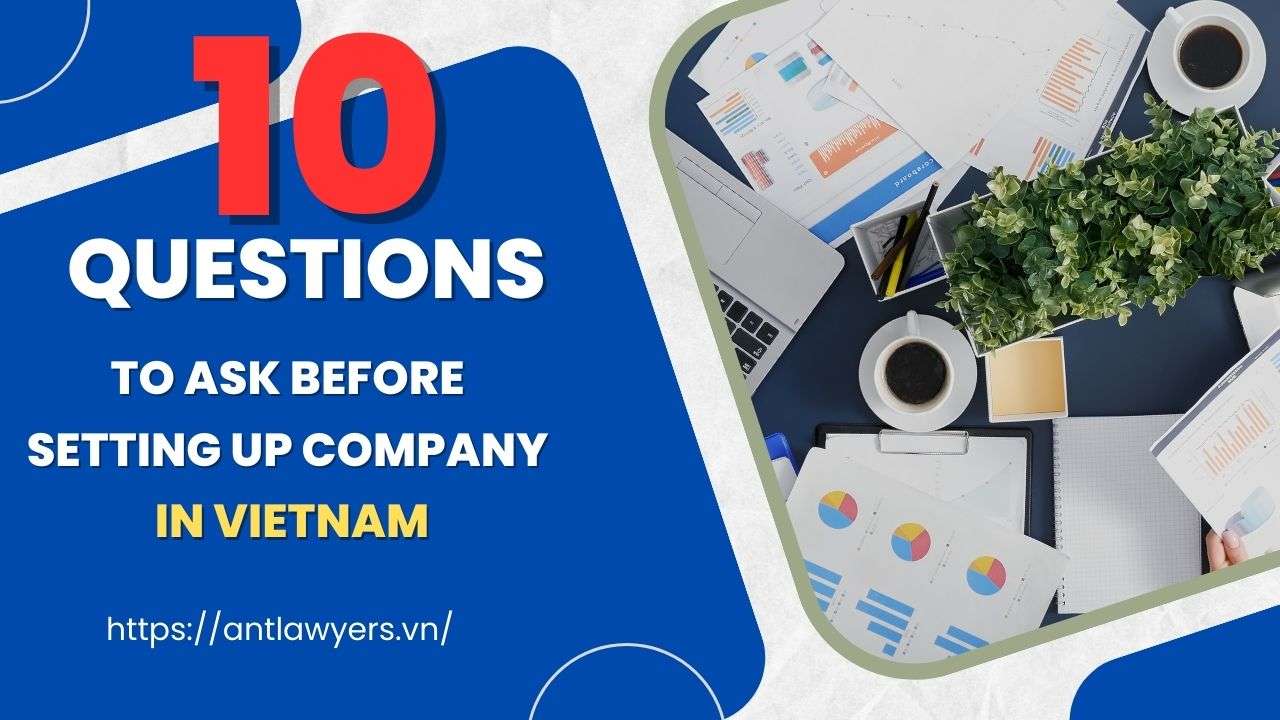
10 Questions to Ask Before Setting-up Company in Vietnam

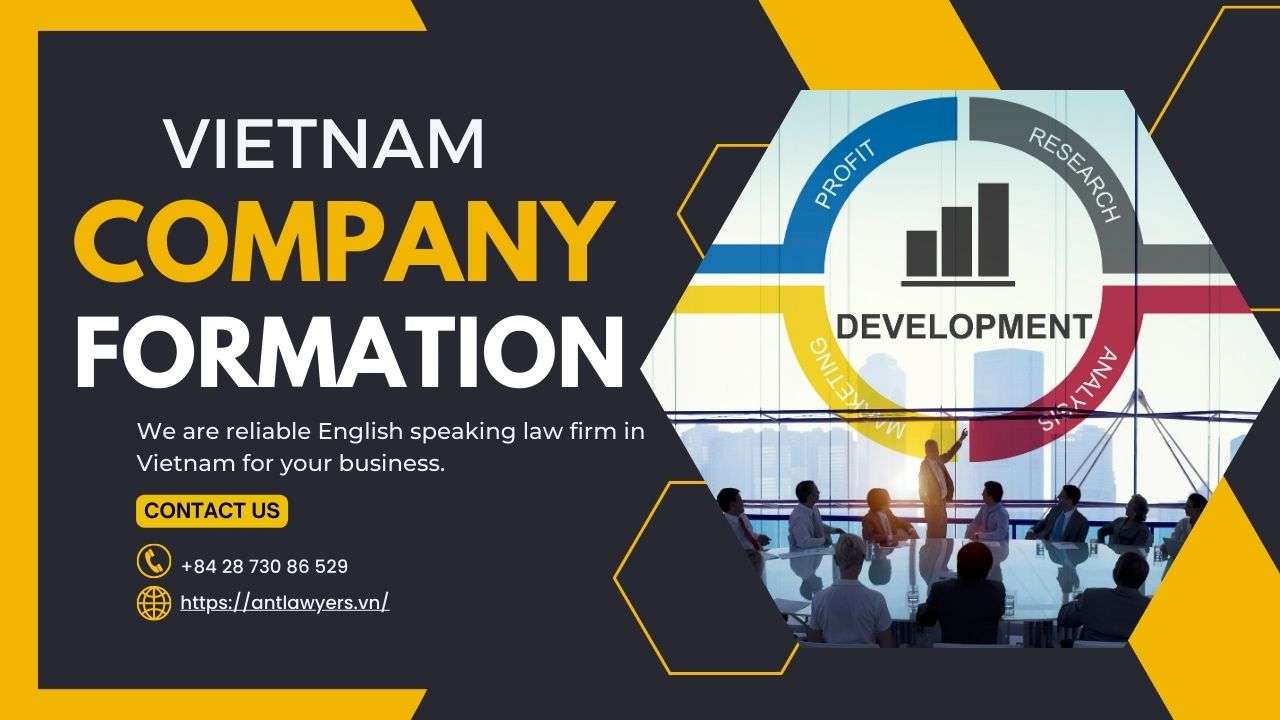
Vietnam Company Formation. How to proceed?
How Foreign Entity Could Set up Representative Office in Vietnam
How Easy to Start a Business in Vietnam as a Foreigner in 5 Steps?
Establish Company in Vietnam: What 8 Steps Guide to Follow
Business Registration in Vietnam: What Important 5 Steps Guide to Follow?
Opening a Business in Vietnam: 10 Quick Tips
How ANT Lawyers Could Help Your Business?
You could learn more about ANT Lawyers Foreign Investment Practice or contact Our law firm in Vietnam for advice via email ant@antlawyers.vn or call our office at +84 28 730 86 529
Recent Posts
5 Powerful Reasons Why Vietnam Digital Asset Sandbox Is a Bold and Hopeful Move for Innovation
Change is fast. Rules are slow. But innovation can’t wait. As digital assets grow, so…
4 Critical Steps to Effectively Terminate The Employment Contracts with Confidence and Compassion
To terminate the employment contracts can be a complex and often sensitive process, especially when…
8 Insights from a Due Diligence Attorneys in Vietnam for Successful M&A Deals
Navigating the complex landscape of mergers and acquisitions (M&A) in Vietnam can be a daunting…
What 7 Crucial Truths About Arbitration in Vietnam Every Foreign Company Must Know Today?
Let's face the fact, as business owners or directors, would you normally look at dispute…
7 Crucial Legal Challenges Fintech Law Firms in Vietnam Can Help You Overcome for Business Success
Vietnam’s fintech sector is experiencing rapid growth, catching up with the trend of digital financial…
7 Reasons to Set Up a Subsidiary in Vietnam Now: A Powerful and Timely Move Amid Global Shifts
Introduction: The World Is Changing Fast, So Should Your Strategy When the world becomes unpredictable,…


